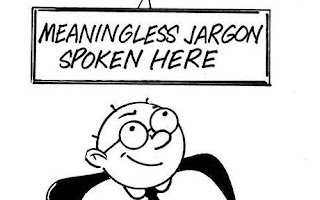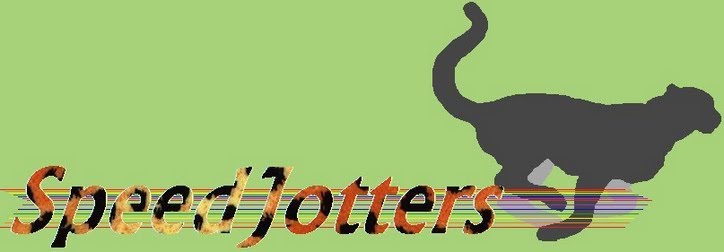
Jargon- the language, vocabulary, peculiar to a particular trade, profession, or group. Unintelligible or meaningless talk or writing; gibberish. Any talk or writing one does not understand.
Slang- very informal usage in vocabulary and idiom that is characteristically more metaphorical, playful, elliptical, vivid, and ephemeral than ordinary language. Speech and writing characterized by the use of vulgar and socially taboo vocabulary and idiomatic expressions.
Cultures have developed slang and jargon deliberately to exclude people outside their group. These slangs or jargons gain currency within an in-group who make up words and expressions to communicate with one another about things they often talk about. Because of this there can really be no understanding of the true meaning of the word outside the group.
Quotes about Jargon
- "Ours is the age of substitutes: instead of language, we have jargon: instead of principles, slogans: and, instead of genuine ideas, bright ideas." - Eric Bentley
- "Jargon is the verbal sleight of hand that makes the old hat seem newly fashionable; it gives an air of novelty and specious profundity to ideas that, if stated directly, would seem superficial, stale, frivolous, or false." - David Lehman
- "Generally, when people use jargon not to communicate but to impress their audiences with their importance . . . or use it to announce membership in a group, communication suffers and the jargon can quickly degenerate into something close to the twittering of birds." - W. Lutz, "Jargon," Oxford Companion to the English Language, 1992
- "What's up dawg?"
- "Hit the road."
- "What's cooking?"
- "What's up G?"
- "That party was off the chain yo'."
- "Let's get crunk tonight."
- "What are your plans for tonight? Nothing, just chillaxin."

Hey Jamie I think your article was really well made and helpful. It is good for me to know all these slangs because english is not my first language and sometimes I get confused.
ReplyDeleteI thought that your blog post was very informative! It flows and is very pleasing to the eye. Slang is very interesting as to how it came about.
ReplyDeleteJamie,
ReplyDeleteGreat first post. You were also the first poster, way to show initiative! The only thing that I think needs a little work is developing your tone; it gets a little lost in bullet points. I thought your post was very informative and I loved the visual you included with your post.
Keep up the good work!
Very interesting stuff Jamie. There is a lot of good information there. You made it all very easy to understand. Like the post.
ReplyDelete